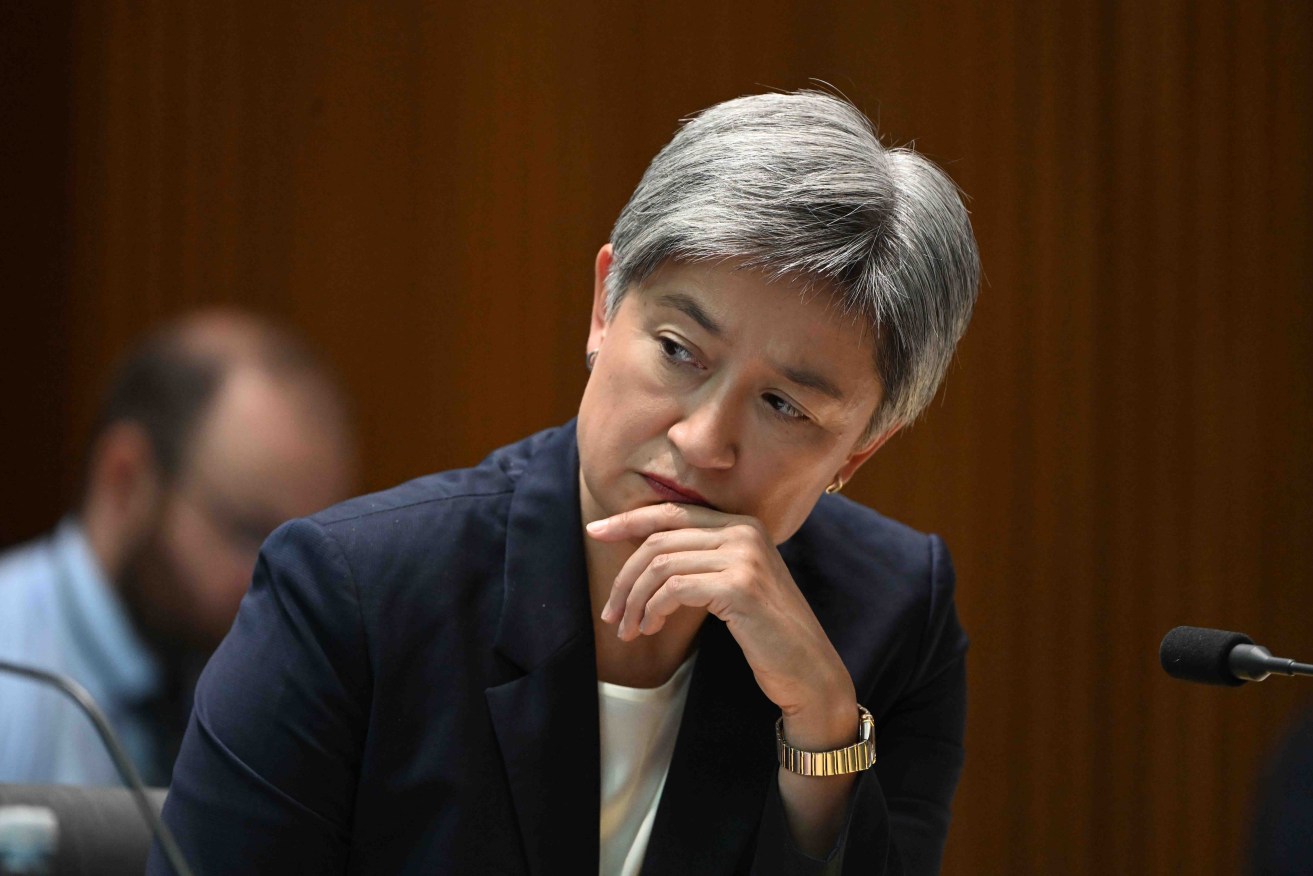Farmers optimistic China trade barriers will fall
Australian farmers are hopeful a breakthrough in a trade dispute with China over barley could pave the way for restrictions on other goods to be eased.

Foreign Minister Penny Wong warns Australian businesses will need to find broader markets despite the barley breakthrough with China. Photo: AAP/Mick Tsikas
The federal government has paused its World Trade Organisation dispute against Beijing for imposing hefty tariffs on barley.
Australian exports of the grain have effectively been blocked from entering China due to a more than 80 per cent tariff since 2020.
Beijing will conduct a review of the tariffs in the next three to four months after which the WTO case will resume if no agreement is reached.
China’s executive vice minister of foreign affairs, Ma Zhaoxu, will hold talks in Canberra with senior trade officials during a visit to Australia on Wednesday.
National Farmers’ Federation chief executive Tony Mahar said the trading breakthrough was reassuring.
He said other items subject to hefty tariffs could possibly re-enter the Chinese market in the future.
“The constructive approach from both countries progressing with this issue is in the longer-term interests of all parties and Australian farmers,” Mahar said.
“We look forward to a positive outcome through this review process and hope to see quick progress on removing trade barriers for rock lobster and wine.”
The four Australian export products at the centre of the dispute with Beijing are barley, wine, meat and crayfish.
Foreign Minister Penny Wong said the government was working as quickly as possible to remove the trade impediments.
“This is all about working to try and resolve this more quickly because of course Australian barley growers and communities that depend on barley would welcome a return of access to the Chinese market,” she told Nine’s Today Show on Wednesday.
Wong said wine exports were the next trade issue the government wanted to address.
Australian Grape and Wine board member Nikki Palun said the industry had built a lot of long-term relations in China before the tariffs and was cautiously optimistic about the resumption of trade.
“We’re looking at the barley as a template, as a way forward for the Australian wine industry,” she told ABC TV.
“We’re very hopeful that a negotiated outcome rather than direct action with the WTO will bode well for the Australian wine industry.”
But Wong said Australian exporters would need to rely less on the Chinese market.
“We know we’re not going to be able to continue to separate our economic and strategic relationship,” she said.
“Australian producers, whether of barley or wine, are going to have to look to diversify markets.”
Palun said winemakers have had initial success in the US and were looking to diversify into Japanese, British, South Korean and Indian markets.
“But it’s very difficult for us to have one single market absorb the volume we used to export to China,” she said.
She said about 95 per cent of wine went to China before the sanctions but the resumption of trade “will be in quite a different fashion”.
Wong said the government was working to improve the relationship with Beijing to ensure trade disputes did not happen again in the future.
A spokesman for China’s Foreign Ministry said the country was looking to collaborate to restore the trade relationship.
“China is willing to work with Australia to return relations onto the right track,” he said.
China remains Australia’s largest trading partner, with the relationship worth $300 billion last year.
– AAP




